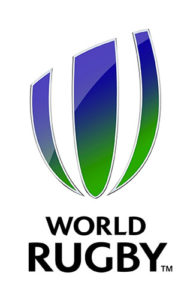
Sir Bill Beaumont shares an open letter as World Rugby Chairman, a former player, father of three rugby players, and a fan
As World Rugby Chairman, a former player, father of three rugby players, and a fan, I am saddened by recent accounts of former players and their experiences. My thoughts are with them and anyone in the rugby family who is struggling.
I want to reassure every member of the rugby family that player welfare is – and always has been – our number one priority at all levels of the game.
As a player who retired on medical advice in the early 1980s, I care deeply about the welfare of all players. They are the heartbeat of our sport and we work tirelessly to protect them.
I have listened to the recent accounts of retired players and appreciate it is not easy for them to speak so candidly about their personal and family circumstances. It is very clear they love the game and want it to be the best it can be. I can reassure them that we do too, and we continue to welcome their views.
As a former player, I have actively participated in long-term cognitive health research. I am personally committed to growing the science available so that we can to continue to shape our understanding of how best to safeguard the wellbeing of our players. I believe that we are at the forefront of evidence-based concussion education, prevention and management in sport.
It is clear, however, that the area of concussion and long-term cognitive health is extremely complex. We have continuously acted on research and scientific information as it has become available. The science continues to evolve, and we will evolve with it.
In the elite game, the Head Injury Assessment (HIA) concussion identification and management tool, combined with comprehensive tournament medical standards and a medically supervised return-to-play protocol have transformed the identification, removal and supervision of players with concussion. It is great to see other sports following this model.
But it is not just on the field that counts. I believe that managing player load – training, playing and conditioning – is critical to tackling injuries, and that’s why we launched research-based player load guidance in 2018.
Community rugby is the foundation of our sport, and at this mass participation level, preparation and technique are key to injury-prevention. Programmes such as Rugby Ready and Activate play a leading role in preparing players – young and old – for training and playing.
I believe everyone should learn more about the symptoms and consequences of concussion – we encourage people to download our Recognise and Remove concussion education app. Any player suspected of having a concussion should be removed from the game. That decision should not be left to the player.
We must not, and do not, stand still. We commission, fund and collaborate on numerous research projects that will ultimately benefit players at all levels. This is our duty, and we take it very seriously.
World Rugby is not simply an organisation; it is a global community. One which is made up of millions who love the game of rugby. We are players, referees, trainers, coaches, medics, physios, administrators, fans, volunteers and parents. In the months ahead, we will not lose sight of the people and families who have bravely spoken up.
Both the game and the level of player care and welfare have evolved significantly since my playing days and, while we are never complacent, I have witnessed first-hand how advances in science and medicine have informed our protection of players.
Today, as a parent and a grandparent, I believe the safeguards in rugby are in place. As an administrator, I will continue to lead on safety and do all I can to maintain the confidence and wellbeing of those who love playing the game.
The world benefits from and needs the positive social value of sport. As societal mental health issues rise, I believe the rugby community can play a significant role in helping individuals feel they belong and contribute to something positive as part of a team.
The positive health and wellbeing benefits – from physical exercise, increasing confidence, self-esteem and self-discipline – are felt at all ages.
Rugby is physical – it is also open and inclusive – and the experience of working and growing as part of a team is something that I believe, with the responsible protection in place, is a great source of positivity in life for all.
Find out more about World Rugby’s player welfare programmes and to download the Recognise and Remove concussion education app, please visit www.playerwelfare.worldrugby.org

